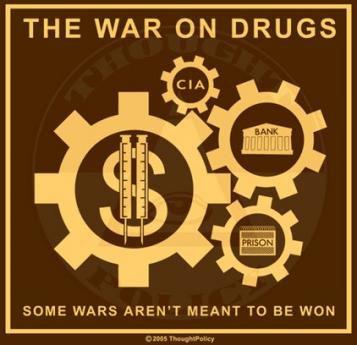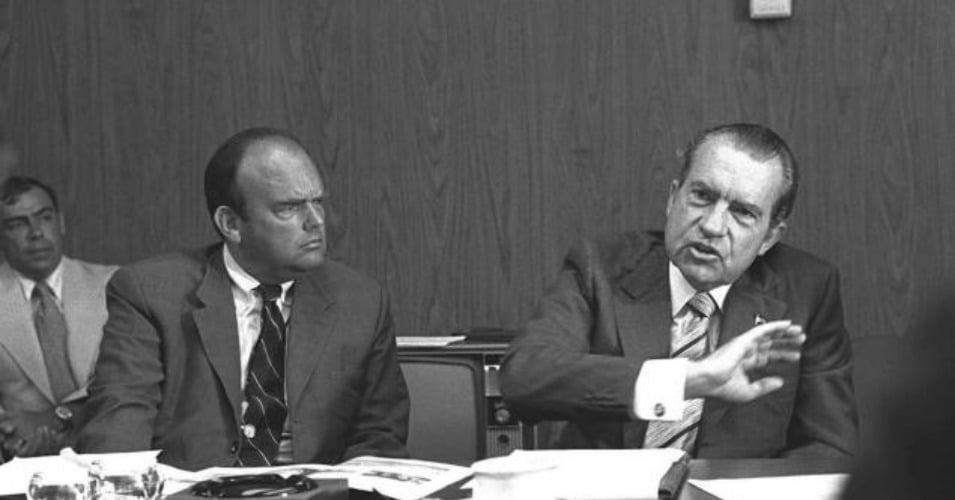Nixon’s War on Drugs Began as Strategy to Attack ‘Antiwar Left and Black People’
Amid new global discussion about ending prohibition, a buried admission by a former presidential aide goes viral

The former top domestic adviser to President Richard Nixon admitted years ago that the so-called “War on Drugs” was crafted to target black people and anti-war leftists, according to new reporting.
“By getting the public to associate the hippies with marijuana and blacks with heroin, and then criminalizing both heavily, we could disrupt those communities.” —John Ehrlichmann, former aide to Richard Nixon
The April feature of Harper’s, an investigation by journalist Dan Baum into the widespread failures of drug prohibition, includes an excerpt from a 1994 interview between Baum and Nixon’s adviser, John Ehrlichman, who died in 1999.One passage in particular went viral on Tuesday:
“You want to know what this was really all about?” he asked with the bluntness of a man who, after public disgrace and a stretch in federal prison, had little left to protect. “The Nixon campaign in 1968, and the Nixon White House after that, had two enemies: the antiwar left and black people. You understand what I’m saying? We knew we couldn’t make it illegal to be either against the war or black, but by getting the public to associate the hippies with marijuana and blacks with heroin, and then criminalizing both heavily, we could disrupt those communities. We could arrest their leaders, raid their homes, break up their meetings, and vilify them night after night on the evening news. Did we know we were lying about the drugs? Of course we did.”
The quote comes early in the feature, framing Baum’s central thesis—that to win the war on drugs, prohibition must end. He notes that legalization of medical and recreational marijuana has caught on throughout the U.S., and that many countries are decriminalizing stronger drugs such as cocaine and heroin as part of a new, more humane effort to address addiction and gang violence.
“[T]he growing cost of the drug war is now impossible to ignore: billions of dollars wasted, bloodshed in Latin America and on the streets of our own cities, and millions of lives destroyed by draconian punishment that doesn’t end at the prison gate; one of every eight black men has been disenfranchised because of a felony conviction,” Baum writes. “Now, for the first time, we have an opportunity to change course.”
“Legalize it all,” he writes.
Next month, the United Nations will dedicate a General Assembly Special Session (UNGASS) to discuss global drug policy. In the run-up to the meeting, Human Rights Watch will highlight the range of human rights abuses that the War on Drugs has caused.


